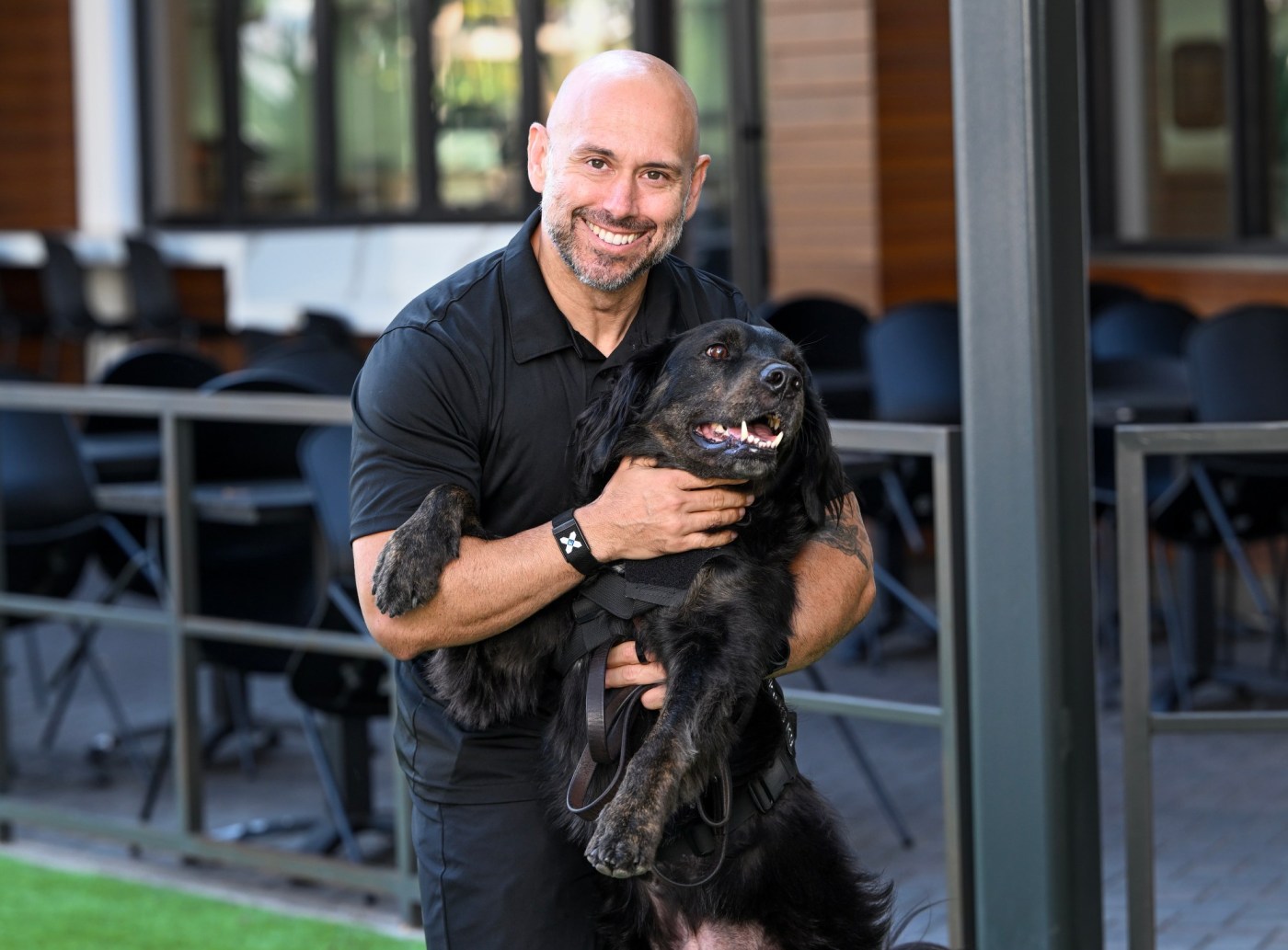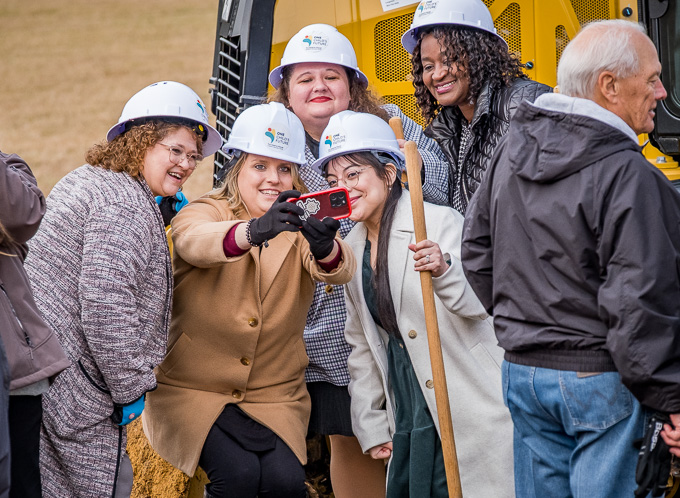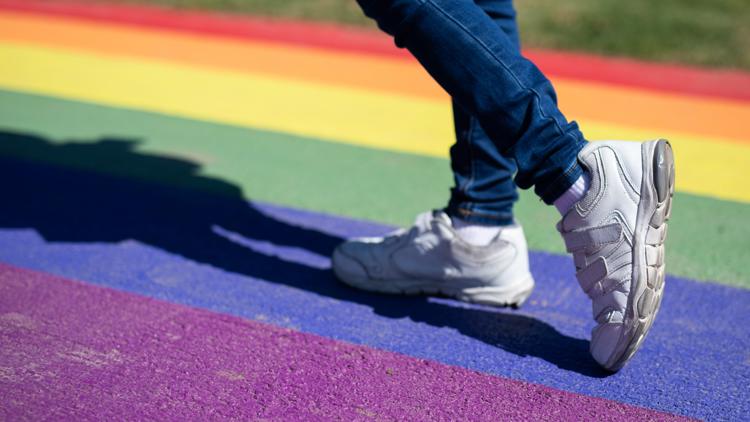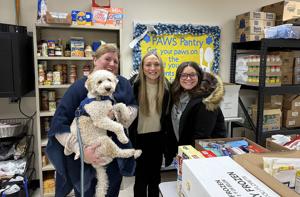Veterans like Joe Moreno are finding hope and healing from Post-Traumatic Stress Disorder (PTSD) through the companionship of service dogs. Moreno, a Navy veteran who served during the 2003 Iraq invasion, faced debilitating anxiety after leaving the military in 2016. The pressures of civilian life left him feeling vulnerable and overwhelmed, prompting him to seek assistance from the Veterans Administration.
Moreno, now 48, recalls his struggles: “I was in a civilian world that I didn’t understand and that didn’t understand me.” Despite engaging in activities like Ironman competitions and mountain climbing, his internal battles persisted. After being diagnosed with PTSD, he found a life-changing companion in Eagle, a four-year-old retriever mix. With Eagle by his side, Moreno reports a significant improvement in his quality of life. “Before Eagle, PTSD had me in survival mode 24/7 just trying to get through another day,” he stated.
With Eagle’s support, Moreno has regained a sense of purpose. The service dog helps him manage anxiety by providing comfort and grounding during challenging moments. “He senses when my anxiety starts to rise and brings me back to the present,” Moreno explained. Their bond exemplifies the transformative impact that service dogs can have on veterans coping with PTSD.
According to data from the Veterans Administration, approximately **14%** of male and **24%** of female veterans were diagnosed with PTSD in fiscal year **2024**. Alarmingly, an average of **20 veterans** take their own lives each day. Research indicates that service dogs can significantly reduce suicidal thoughts and medication dependency among veterans.
A surge in nonprofit organizations, supported by federal grants, has emerged to train and pair dogs with veterans. Some programs even teach veterans to train their own dogs, enhancing the bond and effectiveness of the partnership. However, many of these organizations are experiencing long waitlists, and the costs associated with raising service animals can reach up to **$25,000**.
When Moreno initially sought help for his PTSD, he was prescribed medication that left him feeling numb and disoriented. This prompted him to explore alternatives, leading him to **K9s For Warriors**, an accredited nonprofit that rescues dogs and trains them to assist veterans. Eagle was rescued and trained for eight months before being matched with Moreno.
“Meeting Eagle was super emotional,” said Moreno. “It was like I finally found what I was looking for that no medication could ever fill.” The training program not only equips veterans with service dogs but also fosters a community of support.
Dr. Maggie O’Haire, a psychologist at the University of Arizona, recently completed a study funded by the National Institutes of Health, examining the effectiveness of therapy dogs for veterans. Her research revealed that veterans with service dogs had **66%** lower odds of maintaining a clinical PTSD diagnosis compared to those who did not have a service dog. The study involved **156 veterans** and highlighted significant improvements in anxiety, depression, and feelings of isolation among the service dog group.
O’Haire emphasized the importance of translating these lived experiences into actionable data for policymakers and doctors. “Our goal here was really to translate these lived experiences of veterans with PTSD into actionable data,” she noted.
The impact of service dogs extends beyond individual healing. Eddie Montoya, a former Army staff sergeant, attributes his recovery from alcoholism and PTSD to his service dog, Sly. After serving for **17 years** and facing significant challenges after three deployments, Montoya found new purpose through his relationship with Sly. “It used to be the only way I could go into public was being drunk,” he shared.
Montoya became involved with **Working Dogs for Warriors**, where he trained Sly and learned about the positive influence dogs can have on veterans. His journey inspired him to establish the Brotherhood Bridge Foundation, a peer support group for veterans, which has expanded across the United States.
With newfound confidence, Montoya now serves on the Rialto City Council, where he advocates for better legislative support for veterans seeking service dogs. “Now that I’m in local government, I might be more effective,” he said.
The stories of veterans like Moreno and Montoya reflect a broader movement toward recognizing the vital role service dogs play in the recovery process for those dealing with PTSD. As research continues to validate these experiences, the hope is that more veterans will have access to the support they need.







